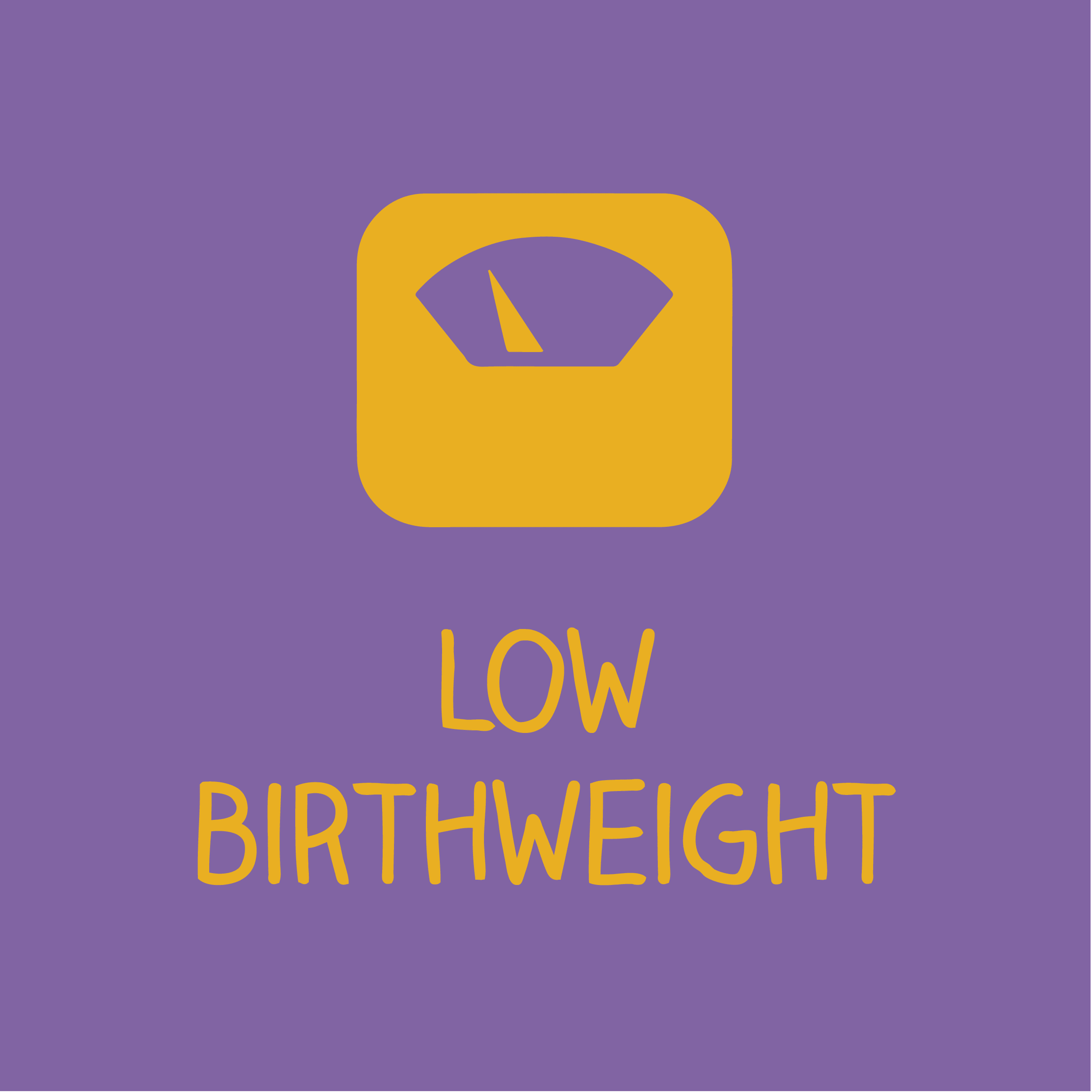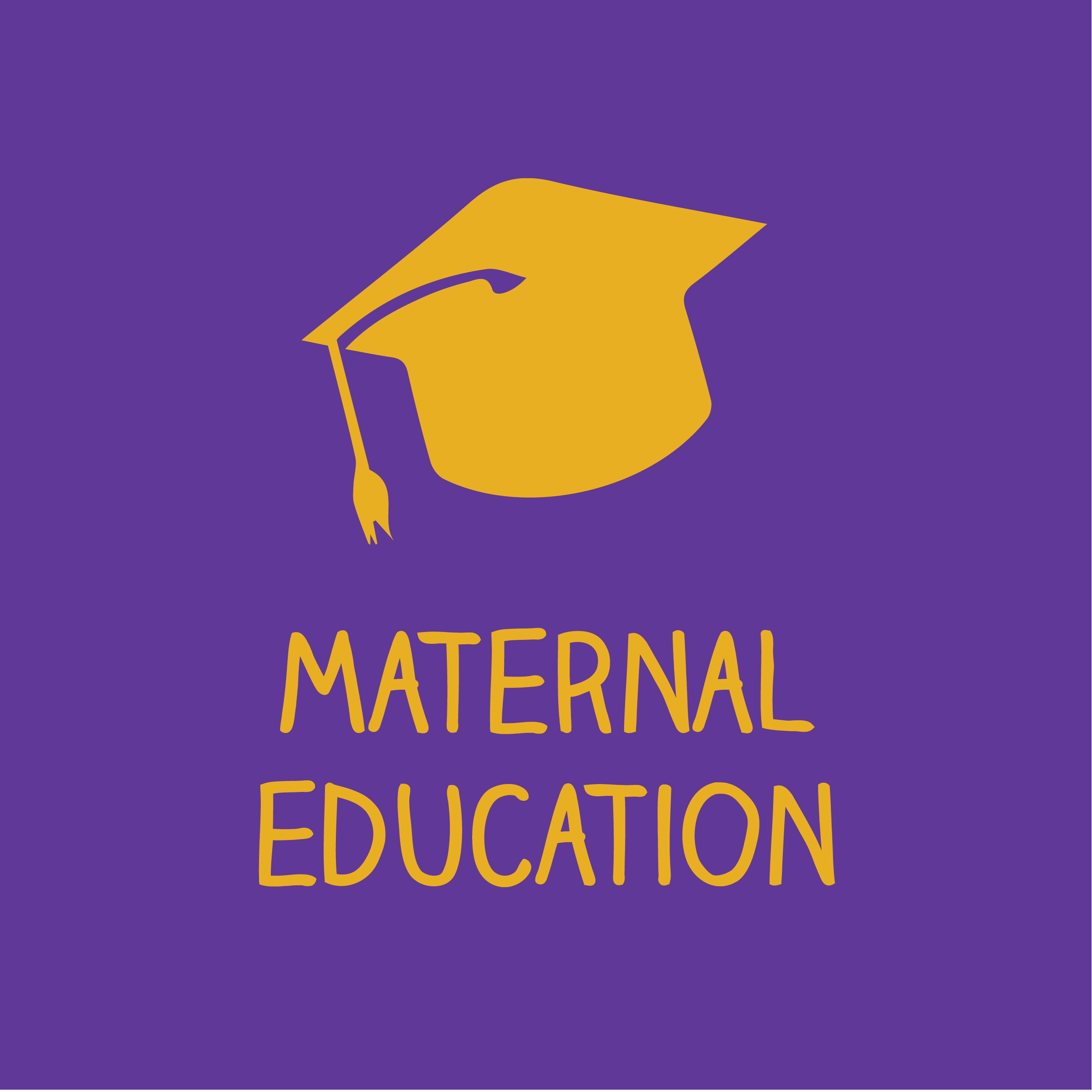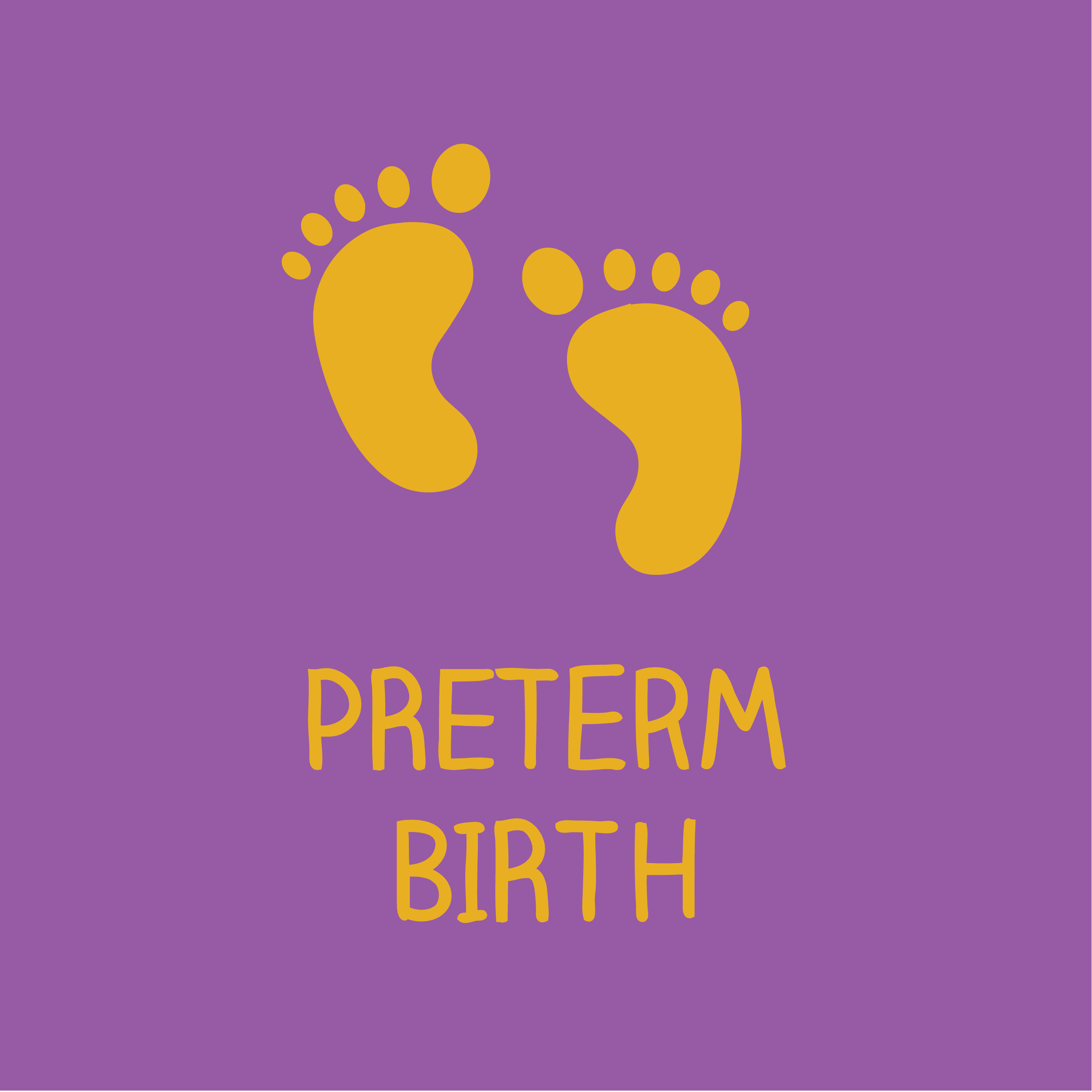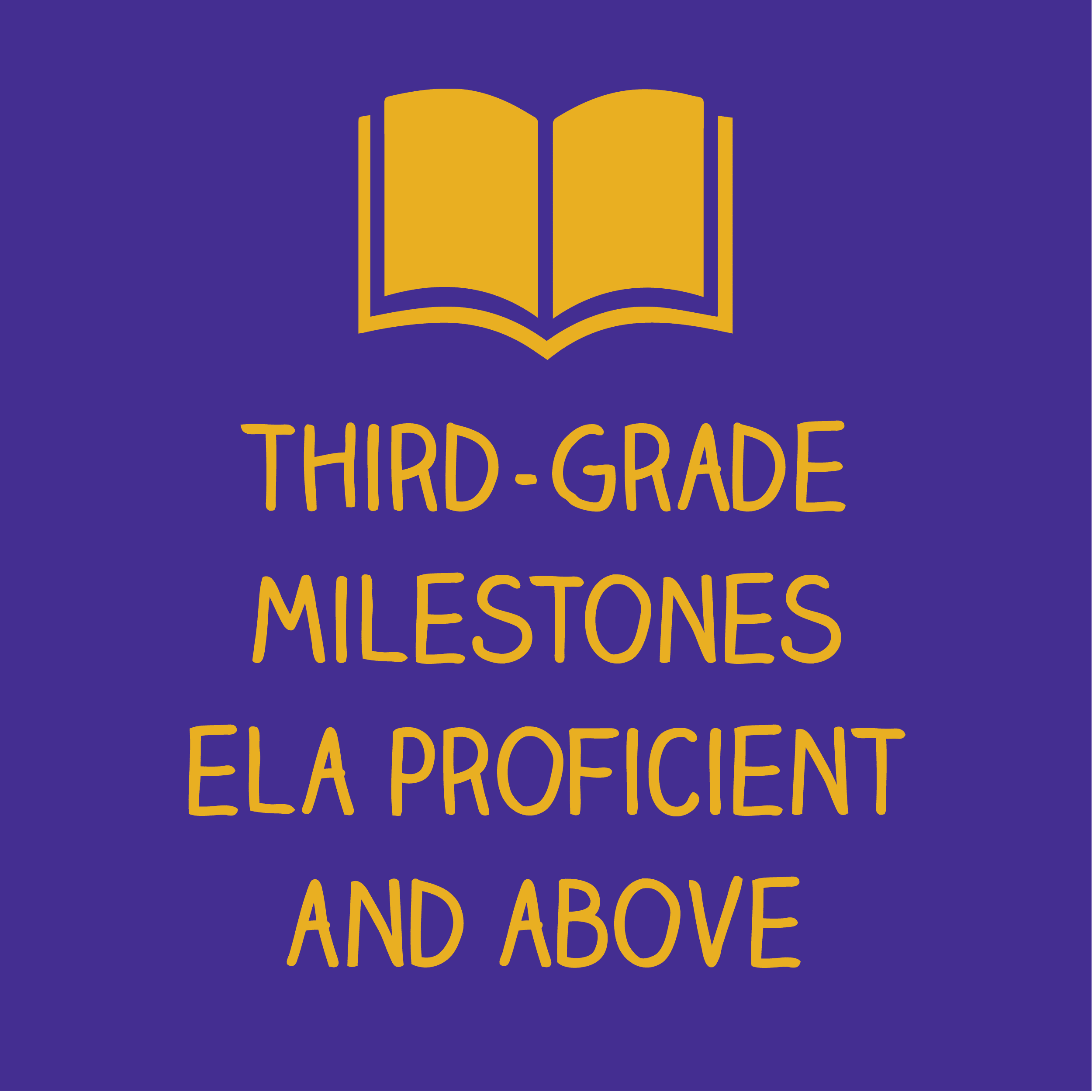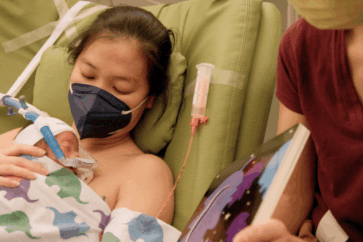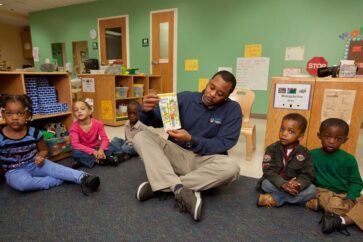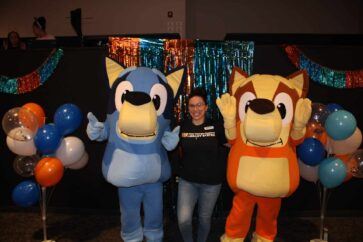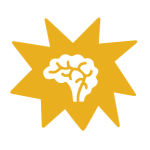
All children experience abundant, positive, language-rich social interactions with caregivers, educators, and peers.
The Expectation
We believe all children should receive crucial adult-child interactions from birth. In the first few years of life, babies’ brains are forming the neural connections for language that shape their capacity to read by third grade and subsequently access their full potential.
The Why
During the first three years of life, the brain undergoes its most dramatic development, forming more neural connections than at any other time period.
When this early development isn’t nurtured, the brain’s architecture is adversely affected and young children fall behind in their development and learning. A major ingredient of this developmental process is the “serve and return”—or back-and-forth communication exchange between infants and parents and other caregivers. Because babies can’t talk at birth, their communication includes eye contact, facial expressions, crying, laughing, touch, and more.
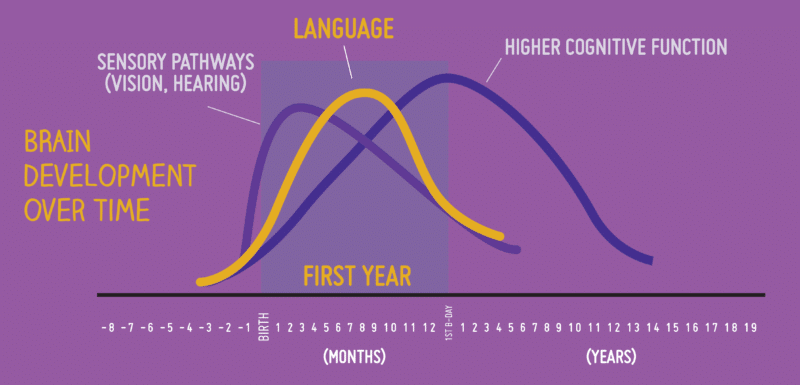
The Science
Early language exposure sets the foundation for cognitive ability, literacy, and school readiness—and it’s the strongest predictor of third-grade reading proficiency.
Not every child is exposed to a rich language environment. Children from low-income families hear approximately 600 words every hour—1,400 fewer than children in higher-income families. This disparity, which eventually becomes a “30-million word gap,” leads to dramatic differences in vocabularies of 18-month-olds, which increase significantly between 18 months and 24 months.
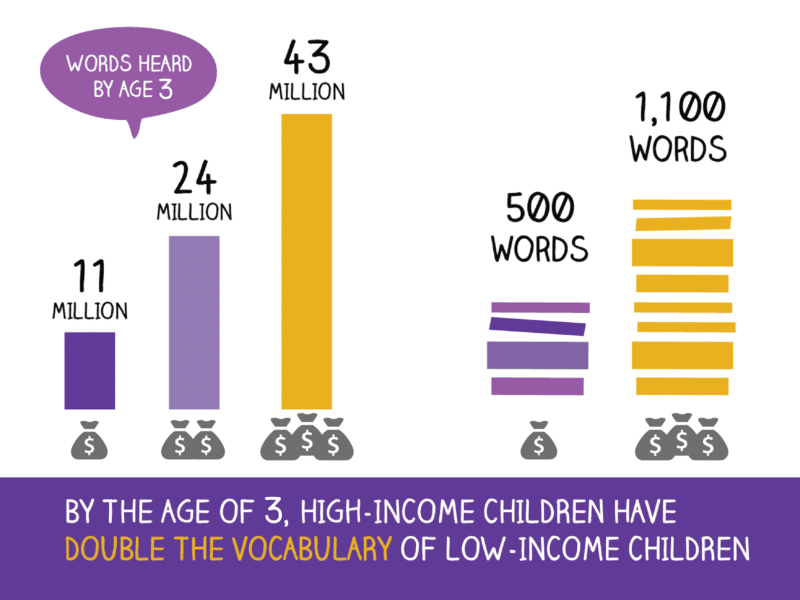
Language Nutrition is effective in any language. Parents and caregivers of “dual-language learners,” or children developing in their home language and in English, should speak in the language they are most comfortable with, whether or not it’s English.
Extensive research highlights the benefits that speaking more than one language has in many areas of development, including cognitive function. Research shows that when families believe they can influence their child’s outcomes, the quality of their interactions increases.
The Value
Recognizing that both quantity and quality of language are as critical to brain development as healthy food is to physical growth, we believe all parents have a voice that matters and the potential to be their child’s first and best teacher. We will achieve our goal by building capacity in parents and caregivers to impart language to their children.
How Are We Doing?
Check out this population-level data indicating current conditions related to early brain development and the need to promote Language Nutrition.
Learn from the Experts
How Are the Children?
Ellyn Cochran, then United Way of Greater Atlanta’s senior director of Early Learning and Development, says all Get Georgia Reading Campaign communities need to rethink this question when assessing children’s well being.
Fueling A Love of Learning
Emily Rubin, then the director of Marcus Autism Center’s Educational Outreach Program, emphasizes the importance of creating a positive learning environment where social-emotional engagement is the fuel for a child’s learning.
Improving Literacy by Listening
Suzanne Harbin, director of the Early Childhood Initiative at the Community Foundation of Northwest Georgia, shares a vital lesson about the importance of talking to and listening to families.
The Power and Magic of Reading and Learning
Sara Lee Crumbs, Quitman County Family Connection coordinator, said something magical happens when likeminded individuals who believe in the power of learning and literacy come together and decide to meet parents where they are.
Shared Reading Program Supports Families in NICU and Beyond
Emory’s Angela Leon-Hernandez says families reading aloud to babies born prematurely has a long-term effect on language and social development, early literacy skills, and school readiness.
30 Million Words: Building the Architecture of the Brain
Dr. Brenda Fitzgerald, then the Georgia Department of Public Health Commissioner, shows how the state’s high school drop-out rate is linked to early brain development and what we can do to change this trajectory.
Meet Baby Ella and Learn How Talk With Me Baby is Helping Her and Other Babies Succeed
Did you know that talking with your baby helps your baby’s brain grow?
Early Autism Screening Can Improve Reading Proficiency
Marcus Autism Center Director Dr. Ami Klin explains why ensuring social milestones is a critical first step toward third-grade reading.
Improving Early Child Development with Words
Dr. Brenda Fitzgerald, then commissioner of the Georgia Department of Public Health, discusses leveraging the simple practice of talking to babies and toddlers to nourish their brains and set them up for better performance in school and life.
What Happens to Children Who Are Born Too Soon
Dr. Lucky Jain, chair of the Department of Pediatrics at Emory University School of Medicine, describes the effects of preterm birth on a child’s capacity to learn.
A Shared Urgency—and Shared Agency
Arianne Weldon, director of the Get Georgia Reading Campaign, dives into the framework to create the conditions for every child in Georgia to become a proficient reader by the end of third grade.
Connecting What We Know With What We Do
Lindee Morgan, executive director for the Sandra Dunagan Deal Center for Early Language and Literacy, shares the science of reading—and dives into implementation strategies that lead to successful outcomes.
Language as a Missing Link
Emily Rubin, director of Communication Crossroads, introduces the concepts of Language as a Missing Link, describes the importance of language indicators of wellbeing, and explains how caregivers and educators can be responsive to children’s level of engagement as a way of fueling their language and literacy development.
Finding the Pandemic’s Silver Lining in Our Communities
Ralph Smith, Managing Director of the Campaign Grade-Level Reading, describes how CGLR is lifting up Kindergarten as a “sturdy bridge” between the early years and early grades on the pathway to third-grade reading proficiency and explains how it is working to accelerate equitable academic recovery.
Be Like Water
Kenneth Mason, Georgia State Board of Education, Fifth Congressional District, shares how we have to take the shape of our communities in order to make a positive impact, and fill community containers in the shape of unthwarted love and learning.
What’s Happening?
Your stories are important! Share them with us and inspire others to take action.
Partner Resources
- Chat About Children: This educational series for families from DECAL features episodes on monitoring development, supporting transition back to child care and school, building your young child’s brain, engaging children in play, how early language builds literacy, and more.
- Ferst Foundation for Childhood Literacy: FFCL provides books for local communities to prepare all Georgia children ages 0-5 for reading and learning success.
- Georgia Pathways:This resource for deaf and hard-of-hearing children, their families, and their community provides information about how to locate statewide programs and partners, access services, and obtain resources for families and professionals.
- Georgia Public Library Services: Use this search tool to find a public library near you.
- Great Start Georgia: Parents expecting a baby or families with young children can learn about all the services in their community they can turn to when needed.
- 1,000 Books B4 Kindergarten: Public libraries across the state encourage parents to read 1,000 books with their children before the age of 5 through this fun and easy program.
- Reach Out and Read Georgia: Young children receive a foundation for success by incorporating books into pediatric care and encouraging families to read aloud together. Find a program near you.
- Read Right from the Start and its Cox Campus: A robust set of free online courses and resources designed by the Rollins Center for Language and Literacy for families, educators, education leaders, and healthcare providers.
- Talk With Me Baby: Free online courses designed for teachers and healthcare professionals who work with infants and toddlers, government agency staff, community members, childcare program and site directors, nonprofit staff and volunteers and others who want to support children’s language development.
Need more assistance? Check out additional Campaign resources.
Check out the Bibliography of Scholarly & Related Articles.

